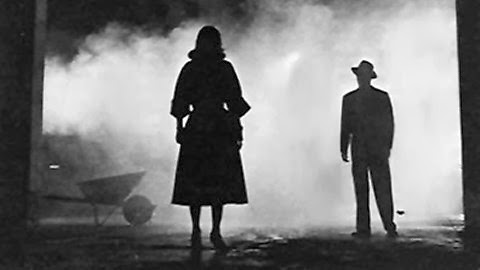My daughter Joelle and I play this game, called (not to original) name the year. We turn on Turner Classic Movies, and before we challenge each other to guess the era of production. There are so many clues, from genre conventions that changed based on studios/time/competition, to the style of acting, and clothing/decor that pervade the scene. Joelle has gotten quite good. So.....can you guess the year this film was made?
If you know Sidney Poitier, you can tell he is pre-Mr. Tibbs, that is a hint. What about the style of dress? What may be confusing is that there are actually three actors of African descent in the shot, so is this a typical Hollywood film? With Sidney, one might think so, hmmm? It deals with Apartheid, so could it really be pre-1960s?
Yep!
The year.....
1951
The film is Cry, the Beloved Country and deals straight on with the insanity and cruelty of South Africa's apartheid System. Hard to believe this was made a decade before Nelson Mandela was placed in Prison. So much work and evil to combat lay ahead, but this film really nails it. Based on Alan Paton's screenplay who his book (1946), it deals with the true incident of death, mutilation and injury of more than 1000 black men who were simply striking for higher wages. The film was banned in South Africa, not surprisingly. Released in 1952, the same year Mandela opened up his black legal firm.
TCM.com has a great description of the brave souls who crafted this film, such as the film's director Zoltan Korda "According to a memoir by Michael Korda, his nephew, Zoltan's health was weakening in the early 1950s but he was determined to make this film, which might possibly be his last, as honest and uncompromising as possible, no matter how much its anti-establishment message might offend the British Empire and its South African avatars. Much of it was filmed in South Africa in the thick of the apartheid era; costar Sidney Poitier, who plays Msimangu, says in his autobiographyThis Life that he and Canada Lee, who plays Stephen Kumalo, entered the country claiming to be "indentured laborers," not actors which would have aroused suspicion. Once they were there, they had to cope with official racism so severe that as black people they'd be breaking the law if they so much as drank a drop of alcohol." (turnerclassicmovies.com)


No comments:
Post a Comment